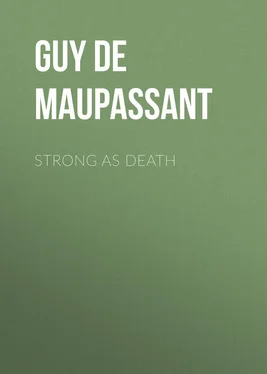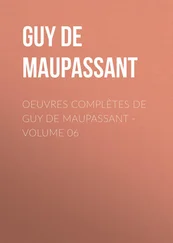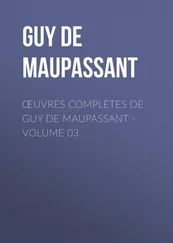Guy Maupassant - Strong as Death
Здесь есть возможность читать онлайн «Guy Maupassant - Strong as Death» — ознакомительный отрывок электронной книги совершенно бесплатно, а после прочтения отрывка купить полную версию. В некоторых случаях можно слушать аудио, скачать через торрент в формате fb2 и присутствует краткое содержание. Жанр: literature_19, foreign_antique, foreign_prose, на английском языке. Описание произведения, (предисловие) а так же отзывы посетителей доступны на портале библиотеки ЛибКат.
- Название:Strong as Death
- Автор:
- Жанр:
- Год:неизвестен
- ISBN:нет данных
- Рейтинг книги:4 / 5. Голосов: 1
-
Избранное:Добавить в избранное
- Отзывы:
-
Ваша оценка:
- 80
- 1
- 2
- 3
- 4
- 5
Strong as Death: краткое содержание, описание и аннотация
Предлагаем к чтению аннотацию, описание, краткое содержание или предисловие (зависит от того, что написал сам автор книги «Strong as Death»). Если вы не нашли необходимую информацию о книге — напишите в комментариях, мы постараемся отыскать её.
Strong as Death — читать онлайн ознакомительный отрывок
Ниже представлен текст книги, разбитый по страницам. Система сохранения места последней прочитанной страницы, позволяет с удобством читать онлайн бесплатно книгу «Strong as Death», без необходимости каждый раз заново искать на чём Вы остановились. Поставьте закладку, и сможете в любой момент перейти на страницу, на которой закончили чтение.
Интервал:
Закладка:
But why did she thus occupy his thought, above all others, in a way so different, so unceasing? Had he simply fallen into the trap set by her coquetry, which he had long before understood, and, circumvented by his own methods, was he now under the influence of that special fascination which gives to women the desire to please?
He paced here and there, sat down, sprang up, lighted cigarettes and threw them away, and his eyes every instant looked at the clock, whose hands moved toward the usual hour in slow, unhurried fashion.
Several times already he had almost raised the convex glass over the two golden arrows turning so slowly, in order to push the larger one on toward the figure it was approaching so lazily. It seemed to him that this would suffice to make the door open, and that the expected one would appear, deceived and brought to him by this ruse. Then he smiled at this childish, persistent, and unreasonable desire.
At last he asked himself this question: “Could I become her lover?” This idea seemed strange to him, indeed hardly to be realized or even pursued, because of the complications it might bring into his life. Yet she pleased him very much, and he concluded: “Decidedly I am in a very strange state of mind.”
The clock struck, and this reminder of the hour made him start, striking on his nerves rather than his soul. He awaited her with that impatience which delay increases from second to second. She was always prompt, so that before ten minutes should pass he would see her enter. When the ten minutes had elapsed, he felt anxious, as at the approach of some grief, then irritated because she had made him lose time; finally, he realized that if she failed to come it would cause him actual suffering. What should he do? Should he wait for her? No; he would go out, so that if, by chance, she should arrive very late, she would find the studio empty.
He would go out, but when? What latitude should he allow her? Would it not be better to remain and to make her comprehend, by a few coldly polite words, that he was not one to be kept waiting. And suppose she did not come? Then he would receive a despatch, a card, a servant or a messenger. If she did not come, what should he do? It would be a day lost; he could not work. Then? Well, then he would go to seek news of her, for see her he must!
It was quite true; he felt a profound, tormenting, harassing necessity for seeing her. What did it mean? Was it love? But he felt no mental exaltation, no intoxication of the senses; it awakened no reverie of the soul, when he realized that if she did not come that day he should suffer keenly.
The door-bell rang on the stairway of the little hotel, and Olivier Bertin suddenly found himself somewhat breathless, then so joyous that he executed a pirouette and flung his cigarette high in the air.
She entered; she was alone! Immediately he was seized with a great audacity.
“Do you know what I asked myself while waiting for you?”
“No, indeed, I do not.”
“I asked myself whether I were not in love with you?”
“In love with me? You must be mad!”
But she smiled, and her smile said: That is very pretty; I am glad to hear it! However, she said: “You are not serious, of course; why do you make such a jest?”
“On the contrary, I am absolutely serious,” he replied. “I do not declare that I am in love with you; but I ask myself whether I am not well on the way to become so.”
“What has made you think so?”
“My emotion when you are not here; my happiness when you arrive.”
She seated herself.
“Oh, don’t disturb yourself over anything so trifling! As long as you sleep well and have an appetite for dinner, there will be no danger!”
He began to laugh.
“And if I lose my sleep and no longer eat?”
“Let me know of it.”
“And then?”
“I will allow you to recover yourself in peace.”
“A thousand thanks!”
And on the theme of this uncertain love they spun theories and fancies all the afternoon. The same thing occurred on several successive days. Accepting his statement as a sort of jest, of no real importance, she would say gaily on entering: “Well, how goes your love to-day?”
He would reply lightly, yet with perfect seriousness, telling her of the progress of his malady, in all its intimate details, and of the depth of the tenderness that had been born and was daily increasing. He analyzed himself minutely before her, hour by hour, since their separation the evening before, with the air of a professor giving a lecture; and she listened with interest, a little moved, and somewhat disturbed by this story which seemed that in a book of which she was the heroine. When he had enumerated, in his gallant and easy manner, all the anxieties of which he had become the prey, his voice sometimes trembled in expressing by a word, or only by an intonation, the tender aching of his heart.
And she persisted in questioning him, vibrating with curiosity, her eyes fixed upon him, her ear eager for those things that are disturbing to know but charming to hear.
Sometimes when he approached her to alter a pose he would seize her hand and try to kiss it. With a swift movement she would draw away her fingers from his lips, saying, with a slight frown:
“Come, come – work!”
He would begin his work again, but within five minutes she would ask some adroit question that led him back to the sole topic that interested them.
By this time she began to feel some fear deep in her heart. She longed to be loved – but not too much! Sure of not being led away, she yet feared to allow him to venture too far, thereby losing him, since then she would be compelled to drive him to despair after seeming to encourage him. Yet, should it become necessary to renounce this tender and delicate friendship, this stream of pleasant converse which rippled along bearing nuggets of love like a river whose sand is full of gold, it would cause her great sorrow – a grief that would be heart-breaking.
When she set out from her own home to go to the painter’s studio, a wave of joy, warm and penetrating, overflowed her spirit, making it light and happy. As she laid her hand on Olivier’s bell, her breast throbbed with impatience, and the stair-carpet seemed the softest her feet ever had pressed. But Bertin became gloomy, a little nervous, often irritable. He had his moments of impatience, soon repressed, but frequently recurring.
One day, when she had just entered, he sat down beside her instead of beginning to paint, saying:
“Madame, you can no longer ignore the fact that what I have said is not a jest, and that I love you madly.”
Troubled by this beginning and seeing that the dreaded crisis had arrived, she tried to stop him, but he listened to her no longer. Emotion overflowed his heart, and she must hear him, pale, trembling, and anxious as she listened. He spoke a long time, demanding nothing, tenderly, sadly, with despairing resignation; and she allowed him to take her hands, which he kept in his. He was kneeling before her without her taking any notice of his attitude, and with a far-away look upon his face he begged her not to work him any harm. What harm? She did not understand nor try to understand, overcome by the cruel grief of seeing him suffer, yet that grief was almost happiness. Suddenly she saw tears in his eyes and was so deeply moved that she exclaimed: “Oh!” – ready to embrace him as one embraces a crying child. He repeated in a very soft tone: “There, there! I suffer too much;” then, suddenly, won by his sorrow, by the contagion of tears, she sobbed, her nerves quivering, her arms trembling, ready to open.
When she felt herself suddenly clasped in his embrace and kissed passionately on the lips, she wished to cry out, to struggle, to repulse him; but she judged herself lost, for she consented while resisting, she yielded even while she struggled, pressing him to her as she cried: “No, no, I will not!”
Читать дальшеИнтервал:
Закладка:
Похожие книги на «Strong as Death»
Представляем Вашему вниманию похожие книги на «Strong as Death» списком для выбора. Мы отобрали схожую по названию и смыслу литературу в надежде предоставить читателям больше вариантов отыскать новые, интересные, ещё непрочитанные произведения.
Обсуждение, отзывы о книге «Strong as Death» и просто собственные мнения читателей. Оставьте ваши комментарии, напишите, что Вы думаете о произведении, его смысле или главных героях. Укажите что конкретно понравилось, а что нет, и почему Вы так считаете.












